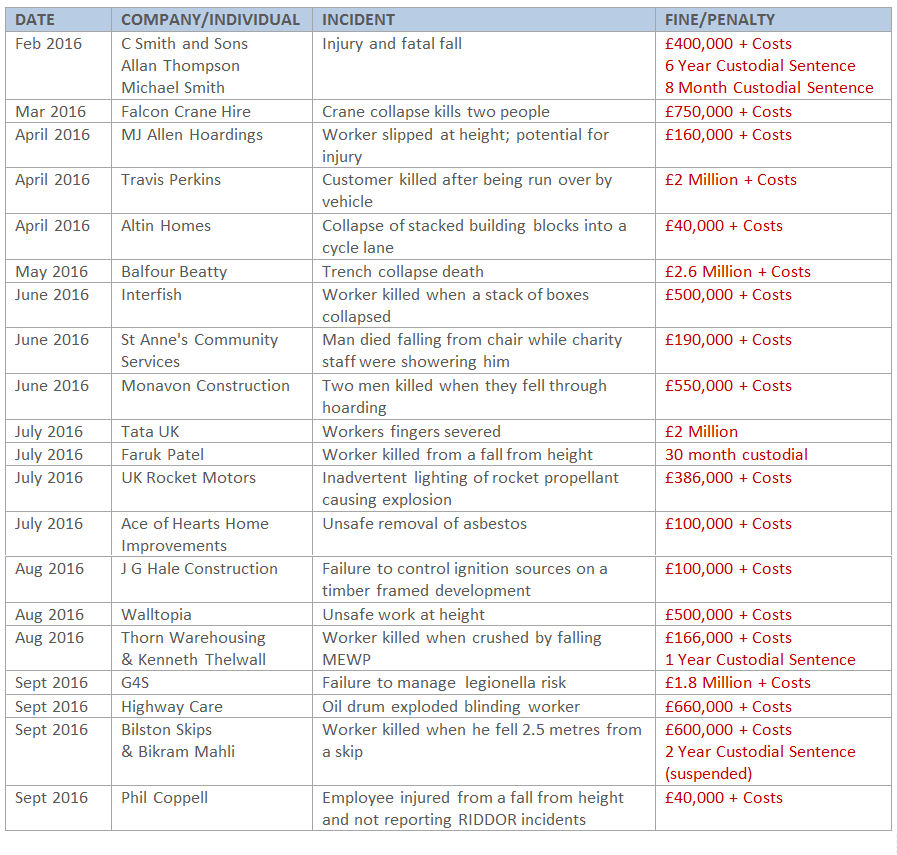New Radical Sentencing Guidelines
Unit 3, Southill Barn
Southill Business Park
Cornbury Park
Charlbury OX7 3EW
United Kingdom



New Radical Sentencing Guidelines
February 2016 saw radical sentencing guidelines come into force for Health and Safety Offences, Corporate Manslaughter and Food Safety and Hygiene Offences; intending to send out a very clear message to directors, shareholders and business owners.
In many instances the levels of prescribed penalties for health and safety offences are likely to cripple a business and there is now a stronger focus on imposing custodial sentences.
The guidelines apply to the sentencing of organisations and individuals and direct the courts to consider a step by step approach when determining penalties; looking at culpability, harm risked and the likelihood of harm. Under the new guidelines actual harm does not need to have occurred; there just needs to have been a risk of harm in order for substantial penalties and custodial sentences to be handed down.
Since implementation of the new guidelines, fines and custodial sentences have substantially increased as the courts now also look at the turnover of an organisation (or group turnover) when determining the size of a fine.
Another decisive factor when determining the level of fine or length of a custodial sentence will be the culpability of the defendant i.e. did the organisation have effective health and safety management, did the duty-holder ignore health and safety requirements etc.
Under the old guidelines, a fine of just a few thousand pounds and no custodial sentence was common; however, we are now commonly seeing fines running into hundreds of thousands of pounds for lower turnover organisations and multi million pound fines for larger organisations; even where no harm has occurred.
Some examples of recent offences sentenced under the guidelines are listed below:
 We can help you mitigate these risks and avoid the potential financial and life-changing consequences.
We can help you mitigate these risks and avoid the potential financial and life-changing consequences.
Contact us for further advice and assistance.